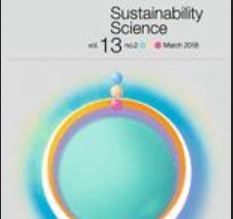
By Sofia Avila.
Abstract
Wind power is expanding globally. Simultaneously, a growing number of conflicts against large-scale wind farms are emerging in multiple locations around the world. As these processes occur, new questions arise on how electricity from wind is being generated, how such energy is flowing within societies, and how these production-flows are being shaped by specific power structures. The present paper explores the expanding geography of wind energy conflicts by analyzing 20 case studies from across the Americas, Africa, Asia and Europe. Based on the Environmental Justice Atlas database, it reflects on how land pressures and patterns of uneven development emerge as two features of the current expansion of wind farms. Following a relational analysis, these patterns are examined to interpret the plural instances of opposition emerging throughout the rural spaces of the world. The article argues that previously unexplored forms of collective action are expanding the scope and content of the “wind energy debate”. In addition to the claims of “landscape” and “wildlife protection” addressed by the existing literature, this study sheds light on the rural/peripheral contexts where opposition emerges through the defense of indigenous territories, local livelihoods and communal development projects. The study contends that these “emerging storylines” embrace an environmental justice perspective when challenging the socially unequal and geographically uneven patterns reproduced by the ecological modernization paradigm. From this lens, cases of local opposition are not interpreted as selfish forces blocking a low-carbon transition, but instead, are understood as political instances that enable a wider discussion about the ways such transition should take place.
Link
https://link.springer.com/article/10.1007/s11625-018-0547-4
email hidden; JavaScript is required
Keywords
Wind energy, Land pressures, Uneven development, Ecological modernization, Conservationism, Environmental justice
How to cite
Avila, S. Sustain Sci (2018). https://doi.org/10.1007/s11625-018-0547-4
Further information
This article is part of the Special Feature: Case Report The EJAtlas: Ecological Distribution Conflicts as Forces for Sustainability in Sustainability Science

The project ENVJUSTICE has received funding from the European Research Council (ERC) under the European Union’s Horizon 2020 research and innovation programme (grant agreement No. 695446)